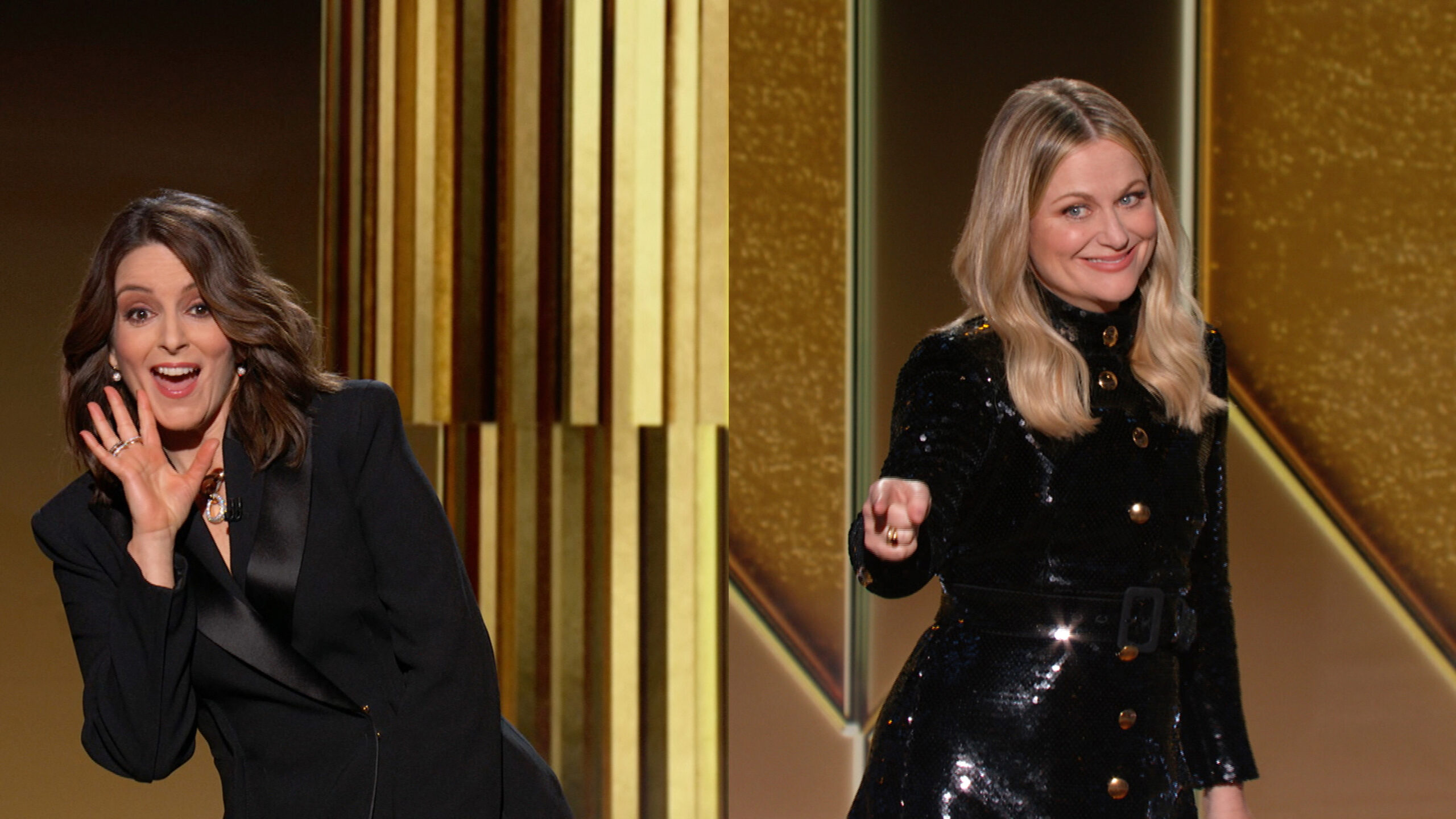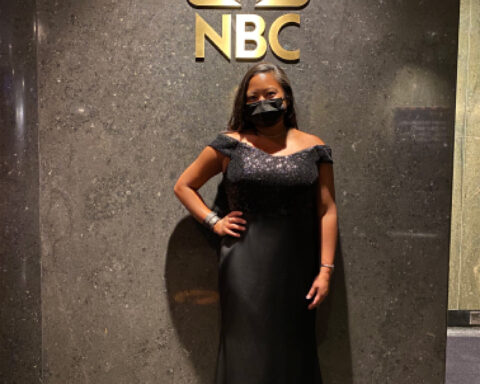The 78th Golden Globe Awards underwent a rocky evening technically while fleetingly seeking to address the controversy rocking the organization behind the ceremony, in a pandemic-dictated format that saw streaming dominate the movie awards and an emotional posthumous win by actor Chadwick Boseman.
“Nomadland,” the understated tale acquired by Hulu, was named best drama, while director Chloé Zhao became only the second woman to win in that category (the other being Barbra Streisand), in a year that saw an unprecedented three women nominated. The acerbic satire “Borat Subsequent Moviefilm” — which premiered on Amazon — was chosen as outstanding musical or comedy, with Sacha Baron Cohen taking best actor in that category.
Boseman’s award, for his role in the Netflix adaptation of the stage play “Ma Rainey’s Black Bottom,” was accepted by his widow, Taylor Simone Ledward, in a moving tribute.
Although they honor both movies and TV, the Globes are watched most closely as a bellwether for the Academy Awards. The traditional awards season, however, has been disrupted by coronavirus, from the release of movies via streaming services to sliding the calendar for these events further into 2021.
After one of the more criticized nomination decisions, “Minari” — an American production about a Korean family in Arkansas — was named best foreign-language film, since that’s the way the HFPA chose to classify it.
In television, Netflix’s “The Crown” looked regal by being anointed best drama for the second time (the last coming in 2017). Amid a wave of wins by British talent, the show added acting honors for Josh O’Connor and Emma Corrin playing Prince Charles and Princess Diana, along with Gillian Anderson as Margaret Thatcher.
“Schitt’s Creek” followed up its final-season sweep at the Emmys by snagging another trophy as best comedy,while the chess-themed “The Queen’s Gambit” and its star, Anya Taylor-Joy, were recognized in the limited-series awards.
This year’s ceremony proceeded under what amounted to twin clouds. Normally considered a big, free-wheeling party (including drinking), the pandemic required a more inventive approach, mirroring some of the remote techniques pioneered at last year’s Emmy Awards. Tina Fey and Amy Poehler again hosted, but in a bicoastal format from New York and Beverly Hills, respectively.
More significantly, the broadcast followed reporting by the Los Angeles Times about questionable ethical behavior by members of the Hollywood Foreign Press Association — the group that presents the awards, and has long been the subject of such controversies — as well as its complete lack of Black members, which prompted criticism from a number of major Hollywood figures.
Black talent figured prominently throughout the night, with Andra Day winning for the title role in the Hulu release “The United States vs. Billie Holiday.” The night’s first two awards both went to Black stars: Daniel Kaluuya, for another historical drama about African-Americans victimized by the government, “Judas and the Black Messiah;” and John Boyega, for an installment in the Amazon anthology “Small Axe.”
In addition, the animated feature award went to Pixar’s first film with a predominantly African-American cast, “Soul,” which premiered on the streaming service Disney+. The movie was also honored for best original score.
Few of the award recipients or presenters referenced the HFPA’s issues, although Cohen thanked the “all-white” HFPA, and “This is Us” star Sterling K. Brown wryly began his introduction by saying, “It is great to be Black — back — at the Golden Globes.”
Fey and Poehler, however, opened the show by directly calling upon the HFPA to address the lack of inclusivity in its ranks, during an alternating monologue in which Fey referred to the group as “90 international, no-Black journalists” and “European weirdos.”
The otherwise-empty ballrooms were populated by masked first responders, while nominees watched from home. The cutaways, however, featuring all of the nominees on screen had an ungainly quality, and Kaluuya’s feed experienced technical difficulties before he could deliver his acceptance — a harbinger of awkward moments to come.
Organizers of the awards stated in advance that they would address concerns about HFPA membership within the broadcast, but three members spoke of doing better in only the broadest of terms. “We look forward to a more inclusive future,” Turkish journalist Ali Sar said in conclusion.
NBC, which pays millions each year for rights to televise the ceremony, has had no comment regarding the HFPA and the latest concerns surrounding it.
The nominations underscored the weirdness of this year’s awards process, with many movie theaters closed and streaming services, especially Netflix, occupying an expanded role. Nominations for the Oscars — like the Globes, delayed due to the pandemic — will be announced on March 15.
Netflix amassed 10 victories overall, including six in television after receiving only one last year. But other streamers were well represented, as Hulu and Amazon each claimed three Globes, with two more for Disney+, reflecting how much of the year’s output shifted to those services.
Politics, not surprisingly, entered the ceremony, with Cohen jokingly thanking his “co-star,” Rudy Giuliani, before adding, “Donald Trump is contesting the result.” Mark Ruffalo delivered an impassioned plea for environmental activism and greater harmony after “the hideous dark storm we’ve been living through,” while writer-director Aaron Sorkin cited the importance of defending democracy in light of the insurrection at the Capitol on Jan. 6.
Jane Fonda echoed those themes in her career-achievement acceptance speech, while urging the industry to lead in terms of inclusivity and telling diverse stories. The TV honor went to 98-year-old producing legend Norman Lear.





